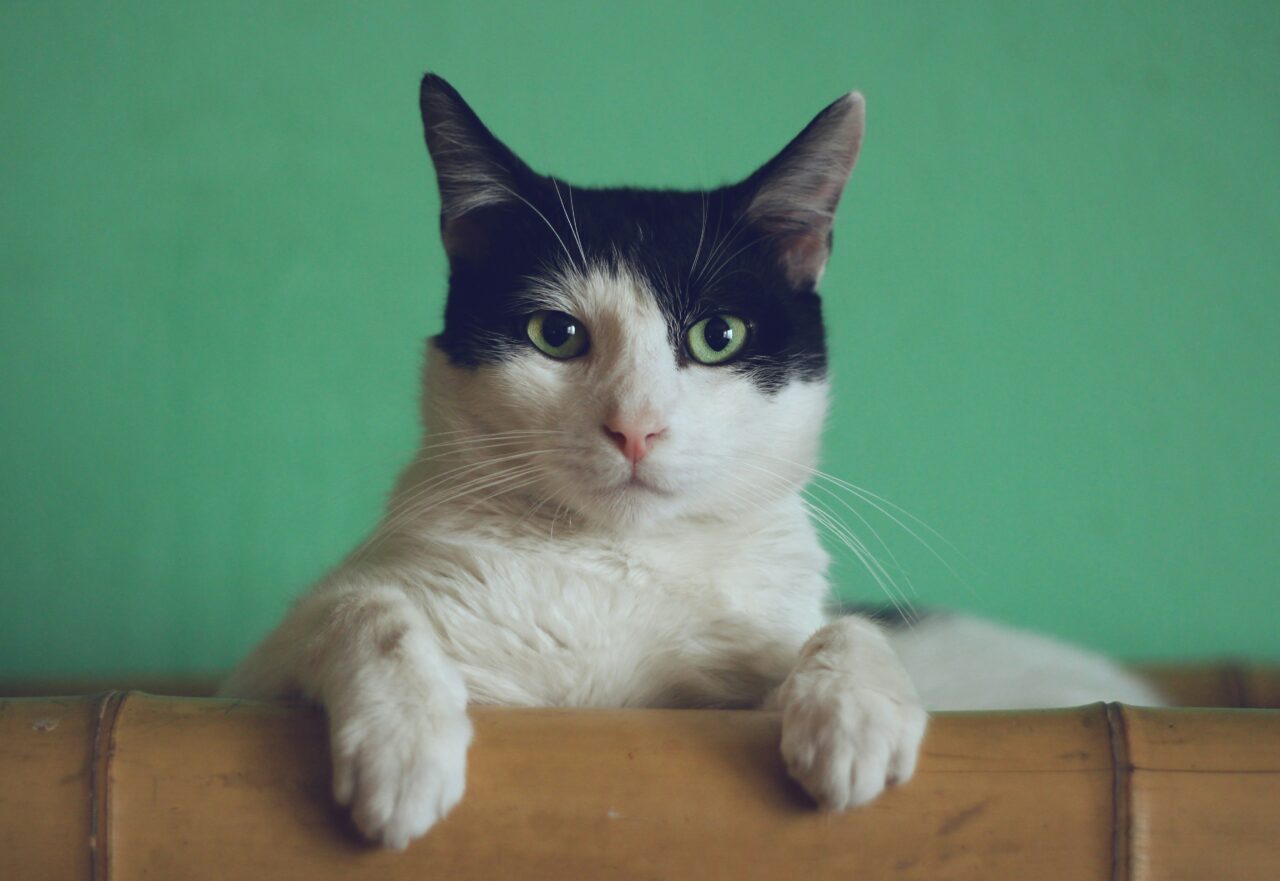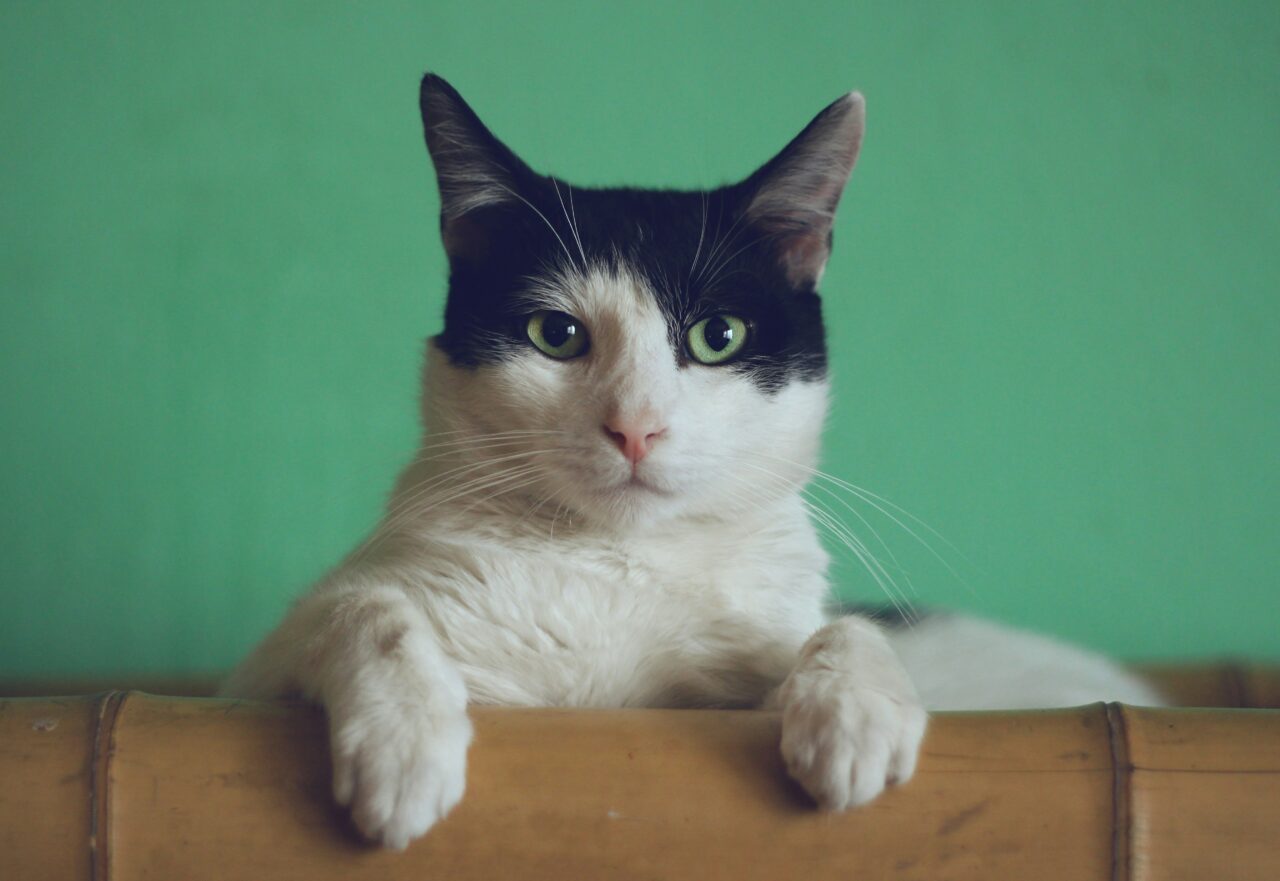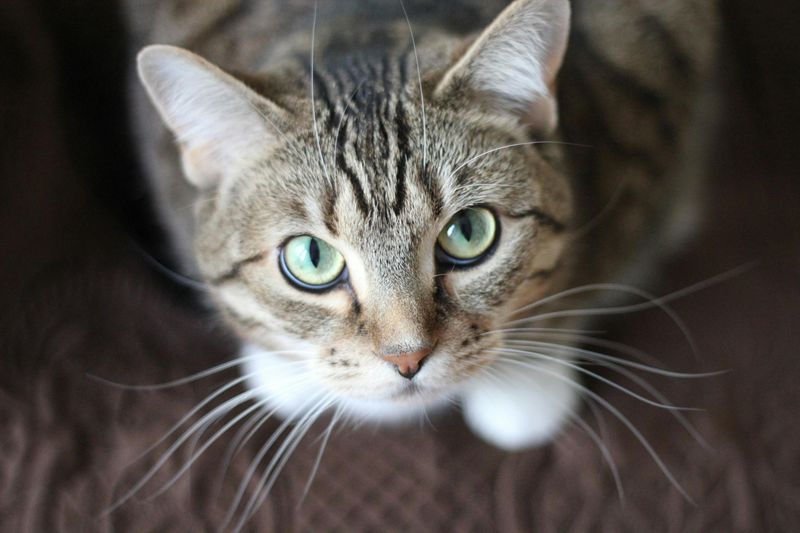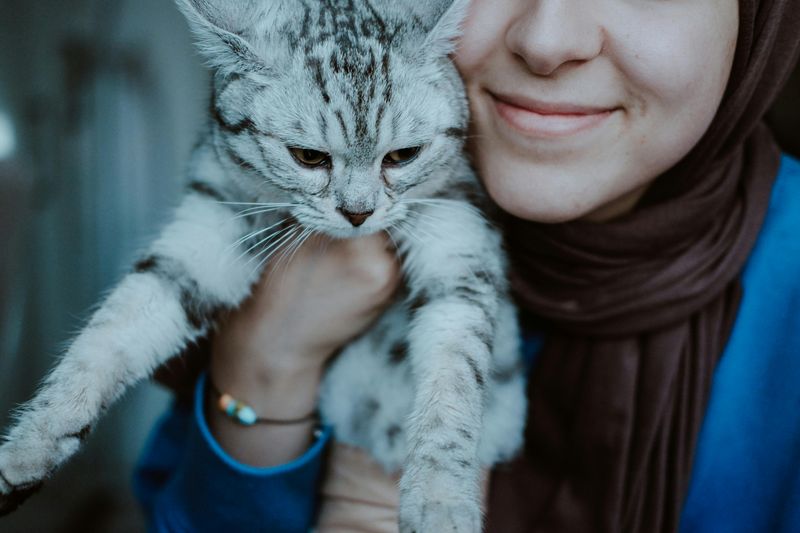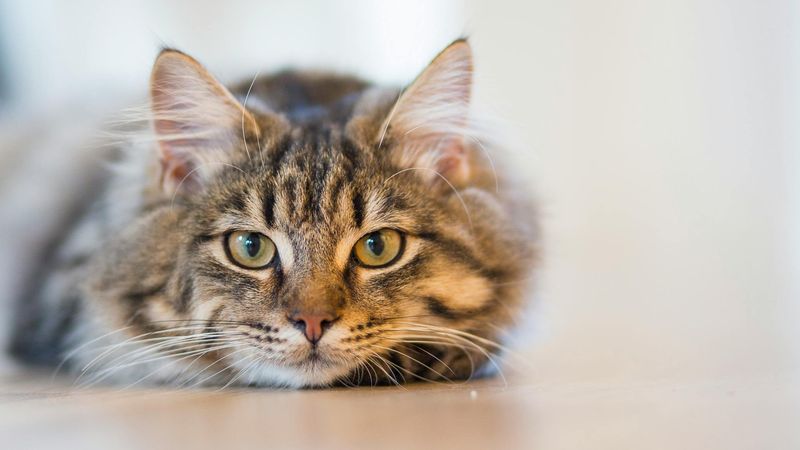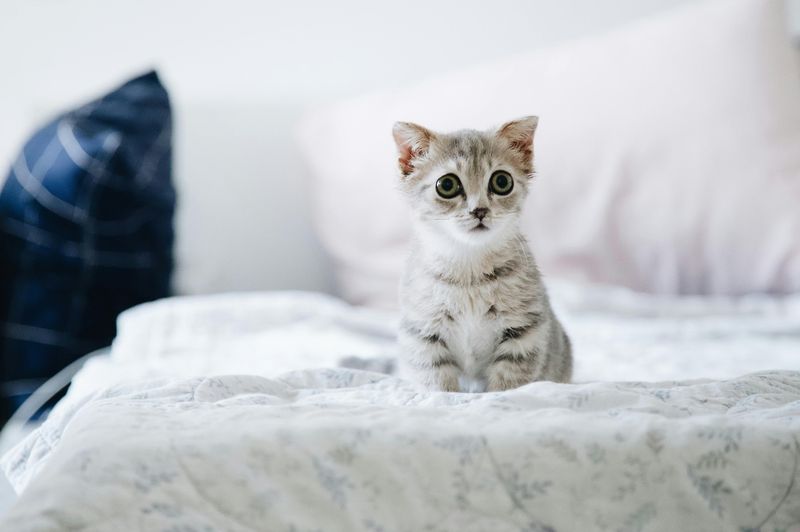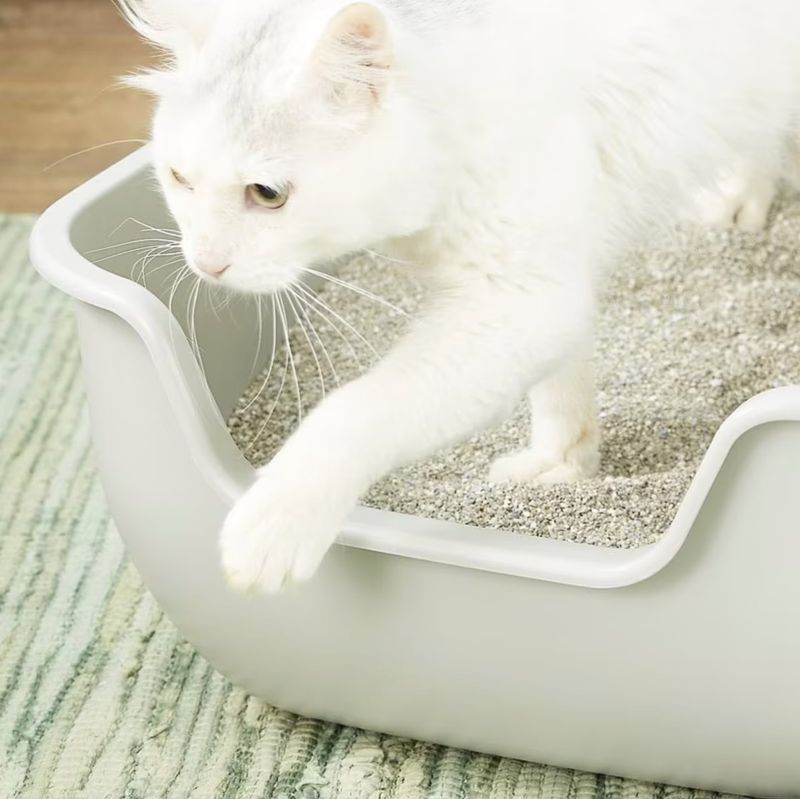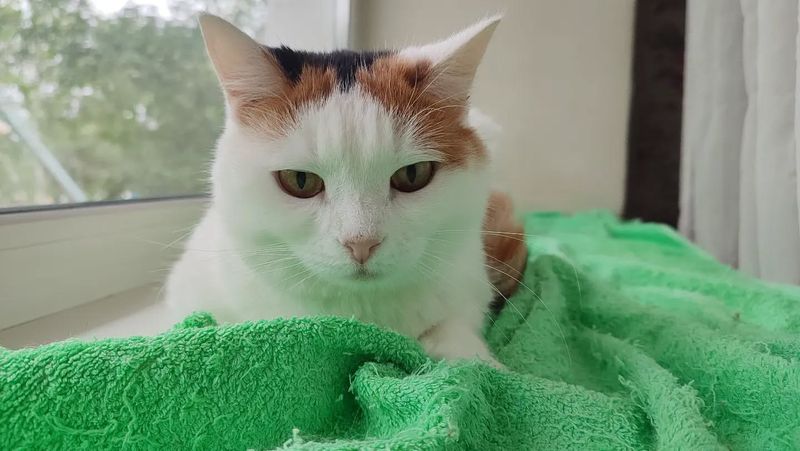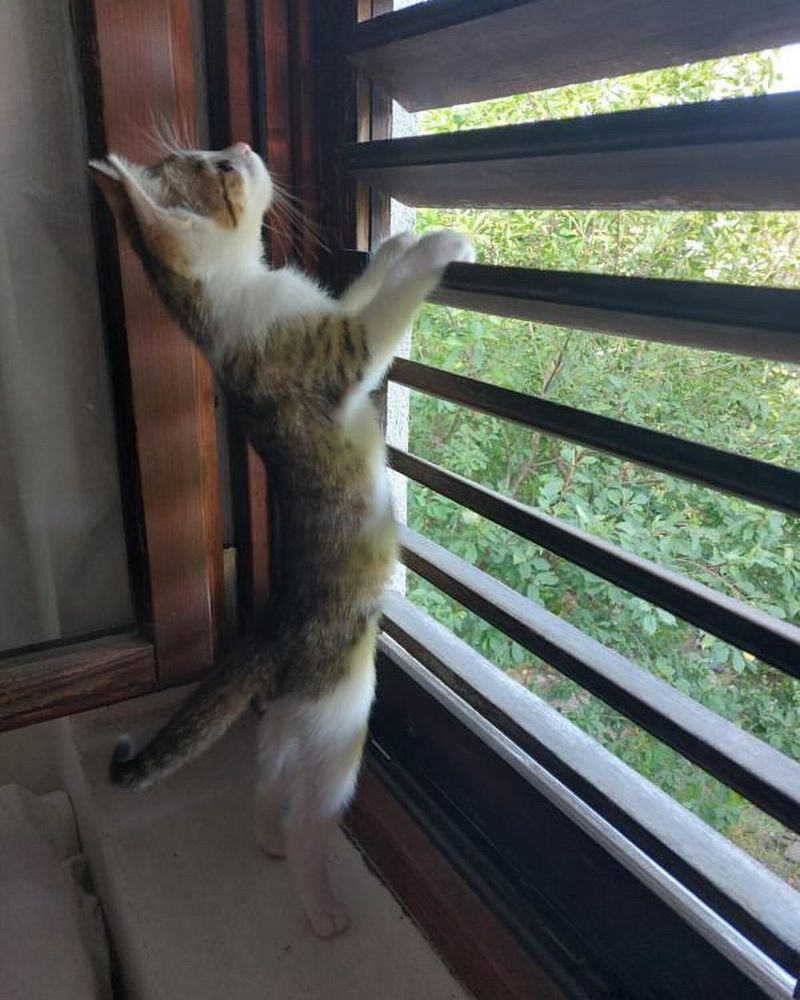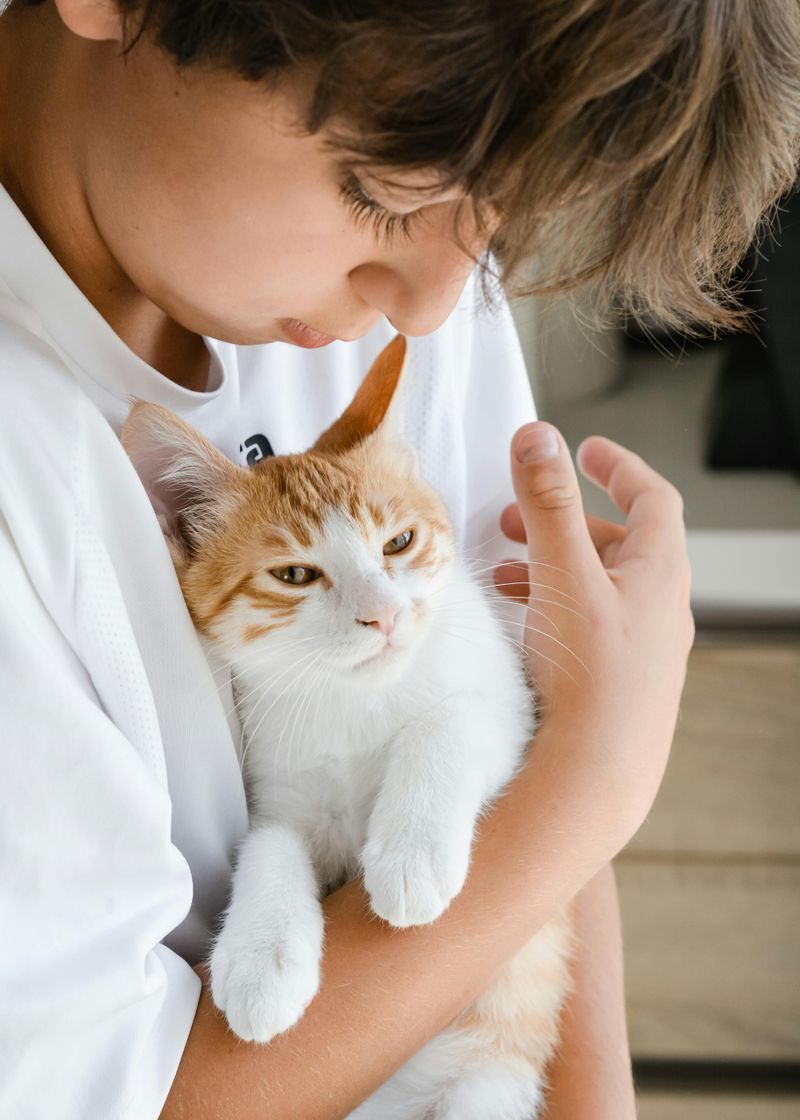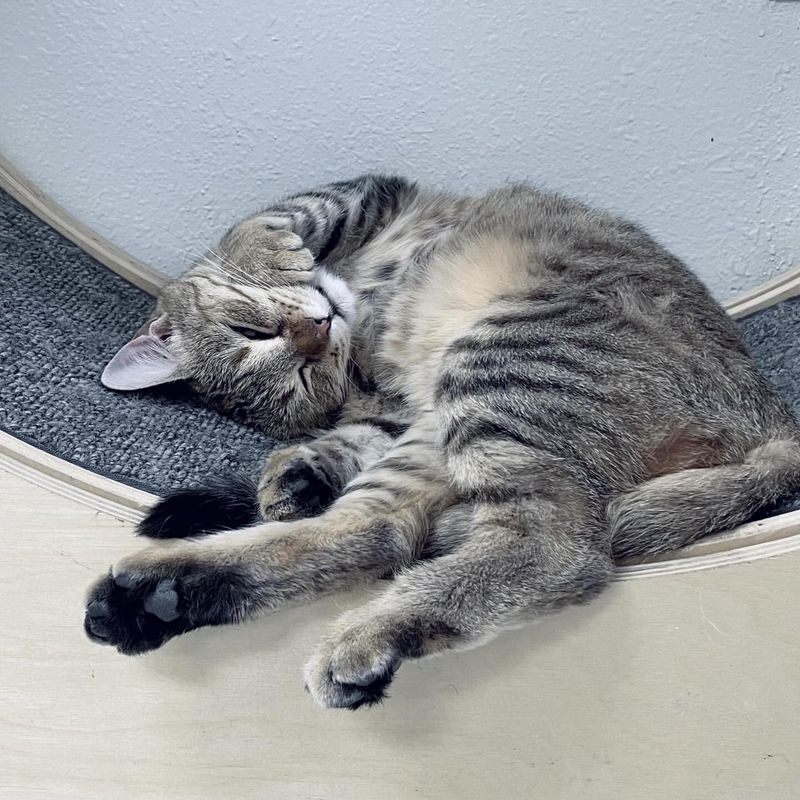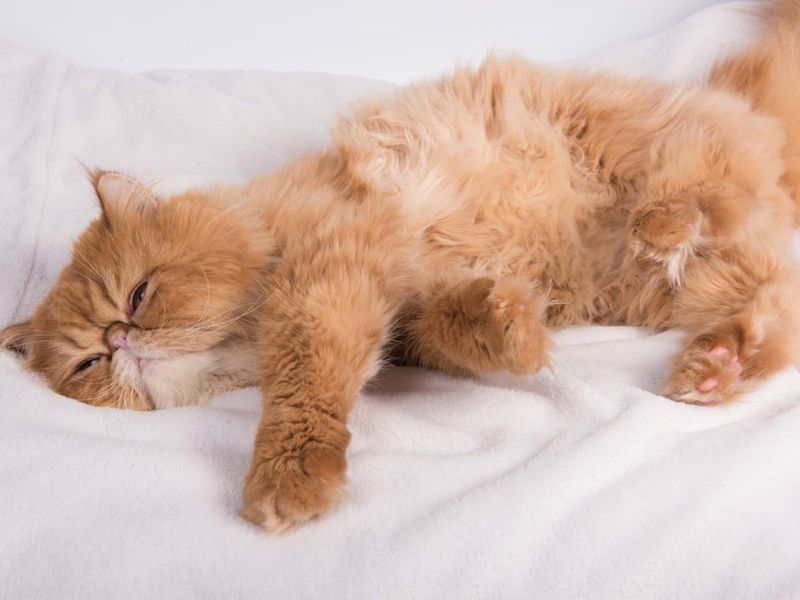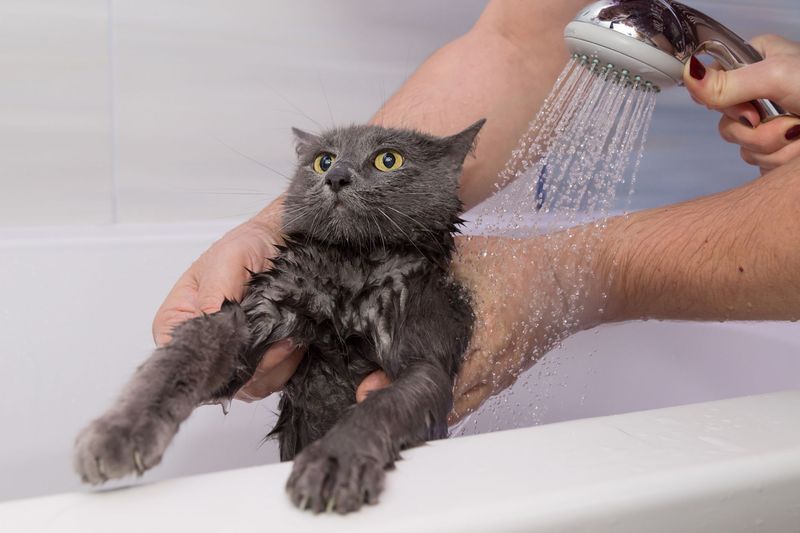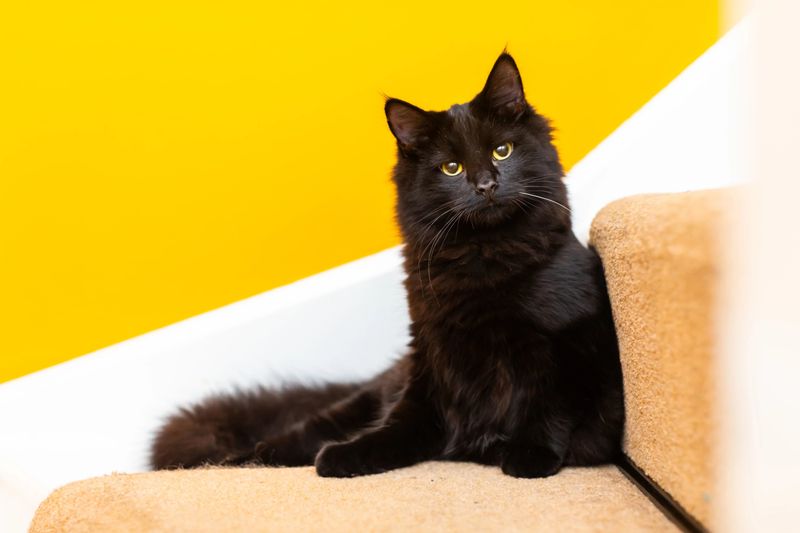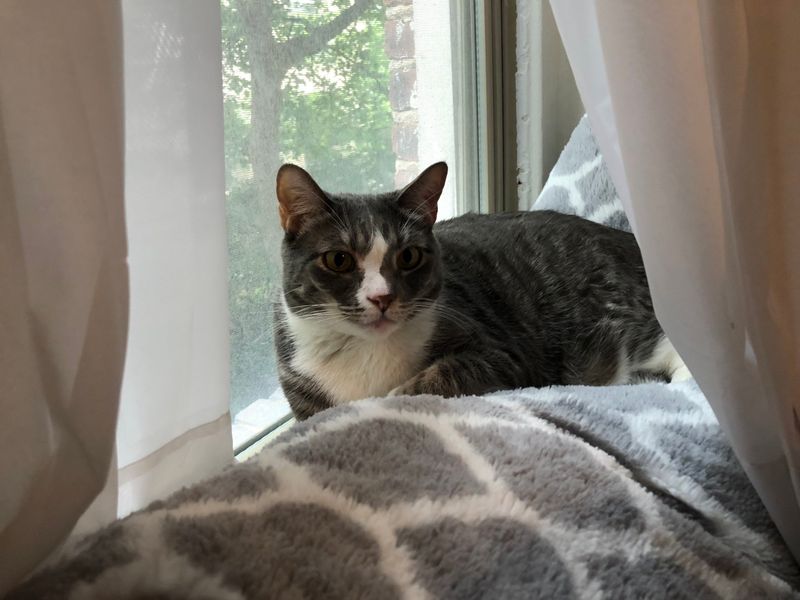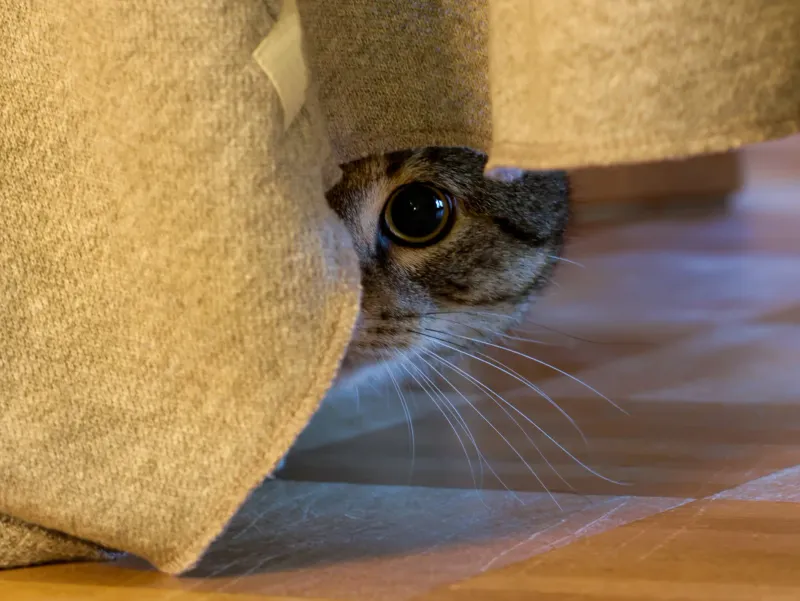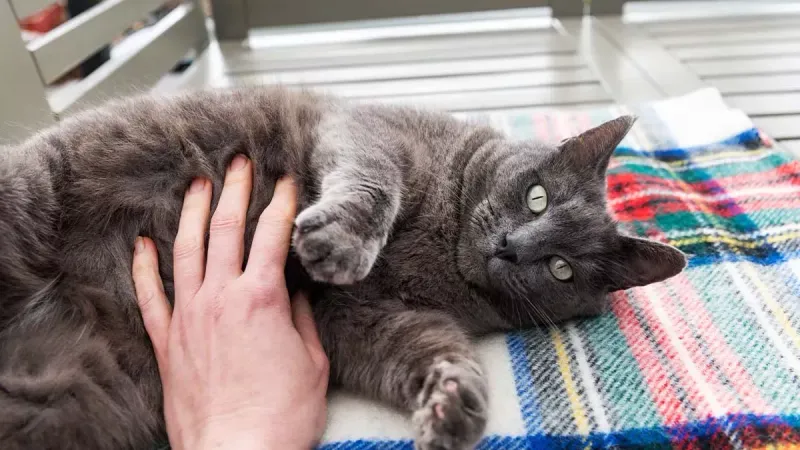📖 Table of Content:
- 1. Loud Noises
- 2. Ignoring Them
- 3. Inconsistent Feeding Schedule
- 4. Too Much Petting
- 5. Bringing in New Scents
- 6. Limited Vertical Space
- 7. Overcrowded Litter Box
- 8. Sudden Changes in Routine
- 9. Ignoring Body Language
- 10. Restricting Outdoor Views
- 11. Forcing Socialization
- 12. Infrequent Playtime
- 13. Uncomfortable Sleeping Arrangements
- 14. Using Strong-Smelling Cleaning Products
- 15. Unexpectedly Interrupting Their Sleep
- 16. Excessive Bathing or Grooming
- 17. Not Giving Them Enough Alone Time
- 18. Forcing Them into Small Spaces
- 19. Making Sudden Movements
- 20. Dressing Them Up
- 21. Touching Their Paws, Ears, or Tummy
Cats may be cute, cuddly, and full of personality—but they’re also creatures of habit with very specific likes and dislikes. While they might not hiss or scratch every time something bothers them, that doesn’t mean they’re thrilled. In fact, many well-meaning cat owners unknowingly do things that stress out, irritate, or even anger their feline friends. From subtle gestures to everyday routines, your behavior might be rubbing your cat the wrong way—and you don’t even realize it.
We’re breaking down 21 common things you might be doing that secretly annoy your cat. If your furry companion has been acting distant or giving you the cold shoulder, it might be time to take a closer look at these habits. Your cat’s happiness could depend on it.
1. Loud Noises
Cats have sensitive hearing, and loud noises can be incredibly unsettling for them. Whether it’s the vacuum cleaner roaring to life or your favorite TV show blasting at full volume, these sounds can create a stressful environment for your feline friend. Cats prefer calm and quiet spaces to feel safe and relaxed.
To minimize their discomfort, try to keep noise levels down, especially in areas where your cat loves to hang out. Creating a quiet sanctuary for your cat to retreat to can make a significant difference in their comfort and well-being.
2. Ignoring Them
They may seem independent, but cats crave attention and affection just like any other pet. Ignoring your cat when they approach you can leave them feeling neglected and unimportant. When your cat seeks your company, it’s their way of showing love and wanting to bond.
To make your cat feel valued, set aside dedicated time each day to interact with them. This can include playtime, petting, or simply talking to them. Acknowledging their presence can go a long way in strengthening your bond and making them feel loved.
3. Inconsistent Feeding Schedule
Cats thrive on routine, and an inconsistent feeding schedule can lead to stress and anxiety. When meal times vary, it can leave your cat feeling unsure about when their next meal is coming, which can be unsettling. A consistent feeding routine helps provide structure and predictability.
Try to feed your cat at the same time each day to provide them with a sense of security. If your schedule is unpredictable, consider an automatic feeder to ensure your cat gets fed on time, easing their stress and maintaining their routine.
4. Too Much Petting
Cats enjoy petting, but there’s a fine line between affection and overstimulation. Too much petting or touching in the wrong spots can lead to irritation and stress for your feline friend. Cats have specific areas where they prefer to be petted, usually around the head and neck.
Pay attention to your cat’s body language to understand their limits. If they start flicking their tail or flattening their ears, it’s a sign to stop. Respecting their boundaries will help ensure that your interactions remain pleasant and stress-free for both of you.
5. Bringing in New Scents
Bringing home new fragrances, whether from another pet or scented products, can lead to stress and anxiety in your cat. Cats have a highly developed sense of smell, and new or strong scents can be alarming to them. They rely on familiar smells to feel secure.
When introducing new scents, do so gradually to allow your cat time to adjust. You can also provide familiar-smelling items, like their favorite blanket, to comfort them. Keeping your home environment consistent can help reduce stress and keep your cat feeling at ease.
6. Limited Vertical Space
A lack of vertical space can make them feel confined and frustrated. High perches allow cats to observe their surroundings safely.
To make your home more cat-friendly, consider adding shelves, cat trees, or window perches. These will provide your cat with opportunities to climb, play, and relax at higher vantage points, helping them feel secure and content. Enhancing vertical space is a simple way to enrich your cat’s environment.
7. Overcrowded Litter Box
A dirty litter box can be a major source of annoyance for them. They prefer a clean, odor-free place to do their business. An overcrowded or unclean litter box can lead to litter box avoidance and stress.
To keep your cat happy, scoop the litter box daily and change the litter regularly. Ensure there’s enough space for your cat to move around comfortably. A clean and well-maintained litter box will not only keep your cat satisfied but also encourage healthy litter box habits.
8. Sudden Changes in Routine
Cats are creatures of habit, and sudden changes in their routine or environment can be quite distressing. Whether it’s moving furniture, changing feeding times, or introducing new pets, these changes can disrupt your cat’s sense of stability. Cats thrive in predictable environments where they know what to expect.
To ease their anxiety, introduce changes gradually and maintain as much of their routine as possible. Providing extra attention and reassurance during times of change can help your cat adjust more smoothly and feel more secure in their environment.
9. Ignoring Body Language
Cats communicate a lot through their body language, and ignoring these signals can lead to misunderstandings and stress. Signs like flattened ears, a swishing tail, or crouching indicate discomfort or irritation. It’s essential to recognize and respect these signs to keep your cat happy.
By paying attention to your cat’s body language, you can avoid situations that may upset them. Responding appropriately to their signals shows that you understand and respect their feelings, fostering trust and strengthening your bond with your feline companion.
10. Restricting Outdoor Views
Cats are naturally curious creatures, and having a view of the outside world can be a source of great entertainment and stimulation for them. Blocking their view with closed blinds or curtains can lead to boredom and frustration.
To keep your cat engaged, create spaces where they can comfortably watch the world go by. Window perches or open blinds can provide hours of entertainment as they observe birds and other outdoor activities. Allowing your cat access to outdoor views can enrich their day and keep them mentally stimulated.
11. Forcing Socialization
While some cats are social butterflies, others can be more reserved. Forcing your cat to interact with guests or other animals when they’re not in the mood can cause anxiety and stress. Cats need to feel in control of their interactions.
Allow your cat to approach new people and animals at their own pace. Providing them with a safe space to retreat to can help them feel secure. Respecting your cat’s social preferences will lead to a more relaxed and confident feline friend.
12. Infrequent Playtime
Playtime is essential for a cat’s physical and mental well-being. Infrequent play sessions can lead to boredom, weight gain, and behavioral issues. Cats need regular stimulation and exercise to stay happy and healthy.
Set aside time each day for interactive play with your cat. Use toys that mimic prey to engage their natural hunting instincts, providing both physical activity and mental stimulation. Regular playtime not only keeps your cat fit but also strengthens the bond between you and your feline friend.
13. Uncomfortable Sleeping Arrangements
Cats spend a significant amount of time sleeping, and having a comfortable place to rest is crucial. Uncomfortable or unsuitable sleeping arrangements can lead to dissatisfaction and restlessness. Cats have specific preferences for their sleeping spots.
Observe where your cat likes to nap and try to enhance these areas with cozy bedding or cushions. Providing multiple sleeping options in different locations can cater to their changing preferences. Ensuring your cat has comfortable sleeping arrangements will contribute to their overall happiness and well-being.
14. Using Strong-Smelling Cleaning Products
Kittens are naturally curious and sensitive to strong odors. Using potent cleaning products can irritate their noses and respiratory systems. Try switching to milder, pet-safe alternatives. This not only keeps your kitten safe but also ensures a healthier environment.
Be mindful of where you store these cleaning agents. Kittens love to explore, and open bottles or spills can pose serious risks. Always store cleaning supplies securely and clean spills immediately. Utilizing natural products like vinegar or baking soda can be effective and safe. Keeping your home clean shouldn’t compromise your kitten’s well-being.
15. Unexpectedly Interrupting Their Sleep
A kitten’s sleep is crucial for their growth and development. Interrupting their sleep might cause stress or hinder their growth. Ensure they have a quiet, comfortable place to sleep undisturbed.
Establish a routine that respects their need for rest. Kittens can sleep up to 18 hours a day, and it’s vital not to disrupt this cycle. Create a cozy sleeping area with soft bedding in a low-traffic part of your home. This helps them feel secure and promotes healthy sleep patterns, supporting their overall development.
16. Excessive Bathing or Grooming
Naturally clean, kittens groom themselves regularly, so over-bathing can cause their fur to lose essential oils, resulting in dry skin. Brushing them frequently with a kitten-specific brush removes loose hair and prevents tangles. It’s also a great bonding time to help them become more comfortable with handling.
Bathing should only be done when necessary, such as when they are particularly dirty. Always use kitten-specific shampoos that are gentle on their delicate skin to ensure they remain comfortable and healthy.
17. Not Giving Them Enough Alone Time
While kittens thrive on attention, they also need time alone to explore and develop independence. Allow them to play and rest on their own without interference. This independence aids in building their confidence and adaptability. Provide them with toys that stimulate mental and physical activity, such as puzzle feeders or interactive toys.
Encourage exploration by setting up safe areas where they can play freely. Balancing attention and alone time ensures a well-rounded, confident kitten who can entertain themselves and interact well with others.
18. Forcing Them into Small Spaces
While kittens are naturally curious, they also need to feel secure. Forcing them into tight spaces can create stress and anxiety. Let them explore at their own pace, giving them the choice to enter small spaces when they’re ready. This builds trust and encourages their natural instincts to explore.
Ensure their environment is safe and inviting, with plenty of room to roam and discover. Giving them control over their exploration supports their confidence and helps them adapt to new surroundings healthily.
19. Making Sudden Movements
Cats are naturally cautious creatures who value predictability in their environment. When you suddenly jump up from the couch or make quick, unexpected gestures, you’re triggering your cat’s fight-or-flight response. This puts unnecessary stress on their nervous system, even if they appear calm on the outside.
Your furry friend prefers slow, deliberate movements they can anticipate. Notice how your cat always approaches situations carefully? They’re expecting the same courtesy from you. Especially in smaller spaces, try to telegraph your movements before making them.
Even playtime should involve predictable patterns rather than erratic movements. When you maintain consistent, smooth motions around your cat, you’re speaking their language of safety and respect, helping them feel secure in their territory rather than constantly on edge.
20. Dressing Them Up
Those adorable pet costumes might rack up likes on social media, but your cat isn’t enjoying the fashion show. Unlike dogs who might tolerate dress-up time, cats generally find clothing restrictive and undignified. The unfamiliar sensation of fabric against their fur can trigger stress responses or even fear.
Cats are meticulous self-groomers who take pride in maintaining their coat. When you place clothing on them, you’re interfering with this natural behavior and potentially disrupting their temperature regulation. Many cats will freeze or display a hunched posture when dressed up – signs they’re experiencing discomfort, not being cute.
If you absolutely must dress your cat for a specific reason, choose minimal, loose-fitting items designed specifically for felines, and limit dress-up time to just a quick photo before returning your cat to their natural, dignified state.
21. Touching Their Paws, Ears, or Tummy
Your cat’s body has sensitive zones they prefer to keep private. The paws contain scent glands and delicate nerve endings that make them particularly vulnerable – that’s why many cats pull away when you try to touch them. Their ears are similarly sensitive, with thin skin and an abundance of nerve endings that can make unwanted handling uncomfortable.
The ultimate no-go zone? The belly. When a cat shows you their tummy, it’s often a sign of trust, not an invitation to rub it. Unlike dogs, most cats consider belly touches a violation of their personal space, triggering defensive reactions like grabbing your hand with their paws or even gentle biting.
Instead, focus your affection on areas cats typically enjoy being touched – the base of the tail, under the chin, or along the cheeks. Respecting these boundaries helps build trust between you and your feline companion.
